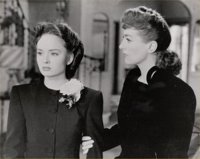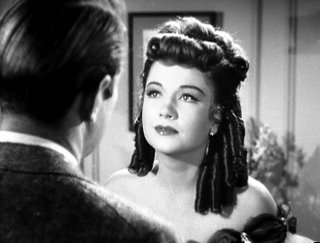
A couple of recent posts over at Dr. Crazy and New Kid on going on the market had me thinking of my recent musings on the matter. Like all good career girls, my mind is always on future motion, although this was a lesson that was taught, not innately known. Ever since my last venture out on the market, I have thought long and hard about what went right, what went wrong, and what was out of my hands. Most facets of my experience fall into the last category, but always believing in agency, we often aren’t comforted by the sheer fact of chance on the job market, and obsess (or at least I obsess) over the little things that, in the end, are mostly unknown to us. Should I have cut my hair? Been more obsequious? Had a better presentation? A better suit? Breath mints?

Some of this thinking has been informed by the fact that this summer in BEC, I am also close physically to Sadistic College, and Mr. Gordo and I have been seeing (socially) old colleagues and friends from our time there. A few days ago, we visited with La Chicana Castellana, an old colleague, and her lovely husband and super cute new baby at their home on the campus of Sadistic College, in point of fact right across from our old house (in desperate need of a paint job). On the way there, I mused that on our way out we should steal our old mailbox, which we installed ourselves and were never paid for. As Mr. Gordo and the husband minded the BBQ, La Chicana Castellana and I caught up on the latest Sadistic College gossip over humus and crudités. This was a session full of news, some already known, for an interesting facet of my departure from Sadistic College has been that I am still, mostly through personal connection, hooked into its news systems. Sometimes this is enlightening, often times depressing, but mostly I think that it is the way the profession works: networks, once established, are hard to break, and the news from Sadistic College at least is always shocking enough to provoke amusement, if not outright disgust (more on this later).

In any event, as La Chicana Castellana filled me in on some missing details of recent tenure decisions (announced at the end of June), and I peered from her porch out onto our old house, peeling paint and all, once so warm and full of love, the windows now dark, occupied by a newly hired tenure-track faculty who lives in BEC most of the time, I thought of how much I learned at Sadistic College, mostly the hard way, but still. On the way home, I talked with Mr. Gordo on the train about this learning curve, and how my experience at Sadistic College, my first tenure-track job, taught me so much about the miserablism of the profession, the small-mindedness of the faculty, the low, low stakes that people will take you down for, the complete lack of generosity. At the time, and still, a lot of this is pure pain. I was so naïve I didn’t know what hit me until six months after the fact. Acting out, actually treading water, I missed my opportunity to set up a nice legal case with a juicy financial settlement, and wonder sometimes why I didn’t sue, like most others who are jilted by the vagaries of Sadistic College.

The one thing I still have, as I told La Chicana Castellana, is my voice, for although I didn’t receive a financial settlement (the college, sued every year, always settles out of court), I also did not sign a confidentiality agreement, standard in all settlement cases at Sadistic College: I can (and have) spoken about my case and Sadistic College in public, and that is, in the end, a freedom that others do not have. Now, the problems with non-disclosure agreements are manifold, not the least of which is a racist, homophobic institution can keep its public reputation intact while shelling out lots of money annually for its decisions. But also, it means that a culture of knowledge is missing, a nexus of information which can help people negotiate not only the financial but emotional depths of negative experiences is absent, and so one, unless they are very clever, must constantly reinvent the wheel of survival. Or at least that was my experience.

Now, I feel I have become the (more) clever girl. As I reflected with Mr. Gordo, my first year at Cold City U. was informed and shaped by my negative experiences at Sadistic College. The watchwords of caution, networks, suasion, and sobriety in all matters did me well, and I feel much more confident, not only in my current employment, but as a professional academic: ears pricked, ready to pounce or jump, a huntress. Part of this learning process was shaped by having to face the market in the deep depression caused by the events at Sadistic College. And I did well, relatively, but also wonder why certain situations didn’t work out. Some were very site-specific, others seemed more mysterious, and when one of my closest academic recommenders (also a Latina) suggested it was because I didn’t “look the part” (i.e. Latino), I was not so much stunned as I was depressingly helpless. I mean, what can I do? And in actuality, following up on some of the positions I was up for, it does indeed seem certain schools and committees were looking more for representative visuality than professional or experiential markers.

Following this, recently I considered an experiment. What, if the next time I am on the market, I tried to adjust my physicality to (racist) expectations? It isn’t that hard, in the end. Right before the vaunted campus interview, I could dye my naturally coloured brown features black professionally (eyebrows, hair, beard), or cut my hair very short, which tends to make me “look” more Latino. I could go to one of those all-body airbursh tanning services and get a chemical body tan in a nice tawny brown shortly before the interview, something natural looking but darker than my own skin tone. Better living through chemicals means I can actually, if I wanted to, play up to the expectations of committees and faculty and deans in hiring the ideal “Latino,” even if that Latino is a projection of their own image of what a Latino is, an uncomfortable tautology but a reality nonetheless. Would I end up with a better job, less teaching, more money, more opportunities? One of the limitations of the experiment is that in actuality it is more than just physical image, but a whole host of stereotypes one must embody to really benefit from tokenism: tantrums, an exaggerated sense of self, a penchant for guilt-tripping, the egregious and random wearing of huaraches and guayaberas. In the end, it is hard to tell where the racist expectations of the institution and society end and our own self-conceptions of "how we are" begin, in this twisted world. That confusion, of course, is part of white supremacy. But I digress...

When I mentioned this experiment to Mr. Gordo, he exploded with indignation. “Why,” he said, “would you want to do something so stupid!?” Why, indeed? Well, we know the market is about the bump-and-grind of selling oneself, and clever girls market what they have at their disposal to snatch the ring. A little deception on this level struck me as relatively benign, since one of the principles of hiring faculty of colour is that they perform (visually or otherwise) their roles. This is an arrangement we live within, whether by agreement or refusal, but deeply within nonetheless. By the time I arrived in the fall, the tan would have sloughed off, my natural hair colour returned, but I would have the job, right? And changing one’s features to cynically meet racist expectations (the gay variant is as easy to achieve, but not so visual) is, in the end, to my mind less spectacular than the other, more debased changes in personality, behaviour, and temperament some of us go through to succeed (viciousness, competitiveness, envy, greed, rage).

I thought of, but did not mention this experiment to Ms. Menchu, a colleague recently relocated to BEC from a prestigious R1 in the Midwest. We met recently for cheeseburgers and afterwards a long walk in the park, where he talked about his experience in the university, and how he has bumped from job to job, generally raising the levels in which he is desired as a candidate with each move. A consummate networker and astute player, Ms. Menchu was quite open about selling her Latino-ness to the highest bidder, and speaks openly about self-commodification as a key to her success. Clear-eyed, he used such moves to fund his own desires, with little care for institutional priorities and prerogatives. To his mind, the institution lost its moral power when it became clear why he was being hired, and this was his way of refusing to play the racist role he was originally cast in. On one level this seems scandalous, but on another, why the hell not? We’re all selling something, and the Shop has little time for the tender mercies of most faculty, especially faculty of colour. So, why not a little bump-and-grind in one’s own favour?
I am still thinking of my experiment, but am not sure about my own rigour in embodying (literally) the racist and commodified expectations of the market so clearly, so brazenly. Towards these ends, I would rather end up as Madonna than Neely O’Hara, but the point of any experiment is that you never really know how it will end up, do you? In any event, it strikes me as an intriguing, if exceedingly (to the self) dangerous, method.



3 comments:
Don't even try that crazy experiment.It's too alte, you are already labeled. Besides, I'm sure you are a cute bi-racial Oso Raro.
As usual, your post is thought-provoking, playful, and a little dangerous all at once. Which is, of course, why I love to read you.
I had an on-campus interview many years ago with a dept. that didn't hire me, I am convinced, because I didn't "look the part" of a "women's studies woman." This was an old-school WS dept.; everyone in it was an earth-mother type. From my research interests, they assumed I was a lesbian, and also assumed I would "look the part" of a lesbian-- whatever that was in their minds.
In any event, I've often wondered if I could've played it differently. I had an idea about what their expectations were, from the phone interview. Could I have pulled it off?
It's frightening to realize how many expectations a new faculty member confronts --and how many people s/he is bound to disappoint.
I could say tons on the re-do concept (and some peoples' actual practice of this), and even more on the question of how one is perceived and how little one can control this. I've seen people tweak their identities (using a married name, or their mother's maiden name, etc.) and I've seen it work for them.
My funniest experience with this was in my last job. I discovered years into it that many people had thought I was gay the whole time. It hadn't made a difference, at least not one I perceived. But it was amusing to find out why they thought this. They cited the lack of stiletto heels and ruffles, the black dresses, the strong opinions, the urban life, and most importantly, the lack of discussion of husbands or boyfriends in class.
Post a Comment